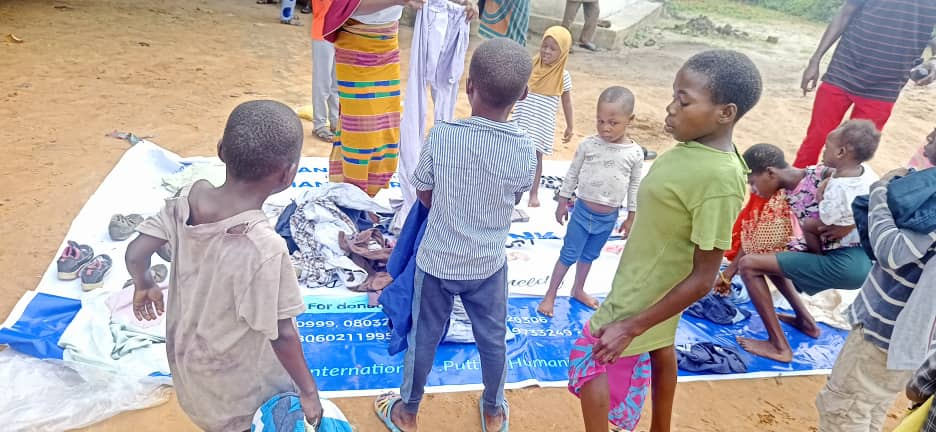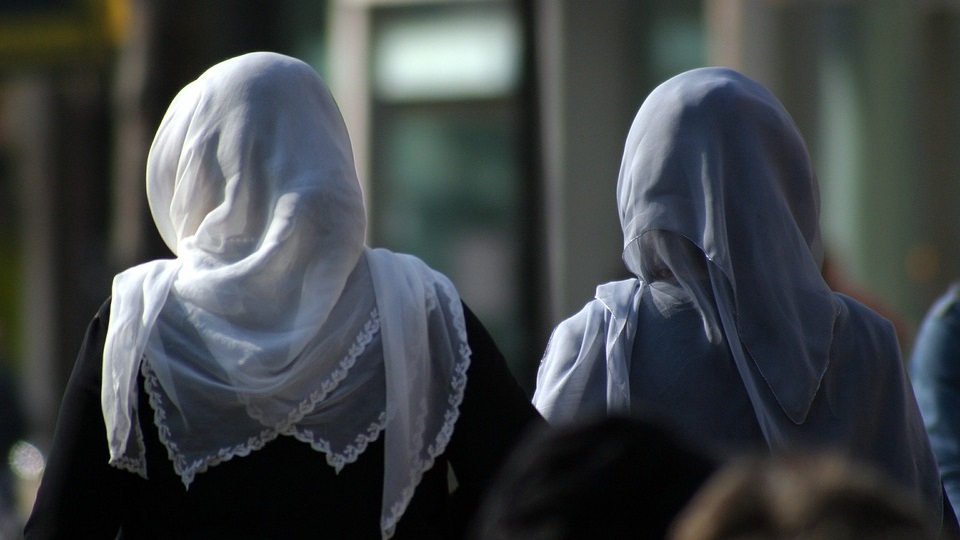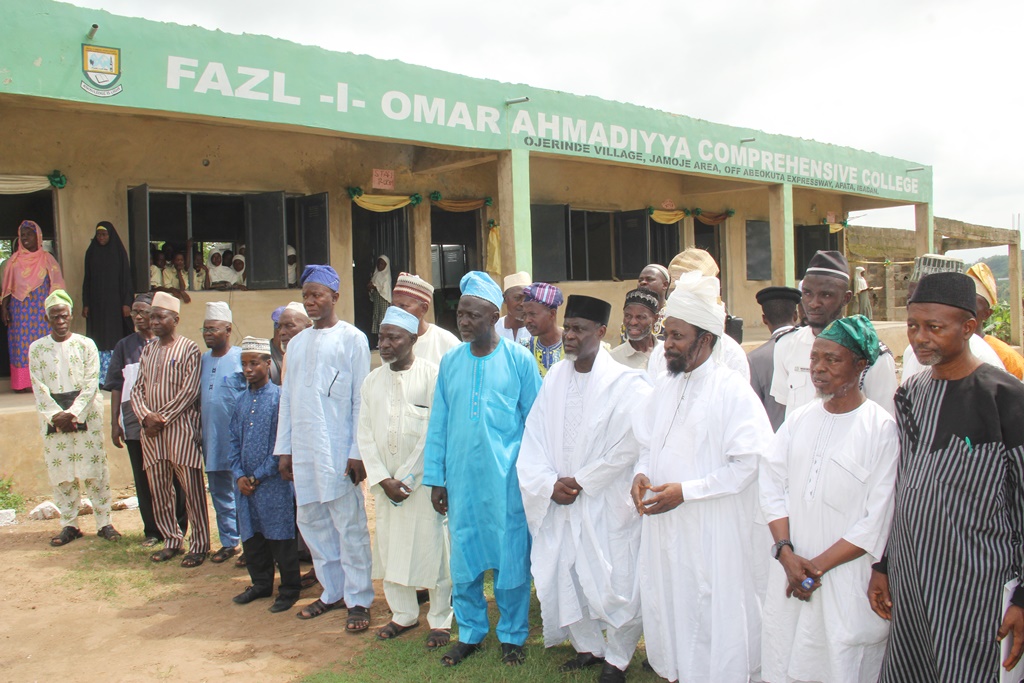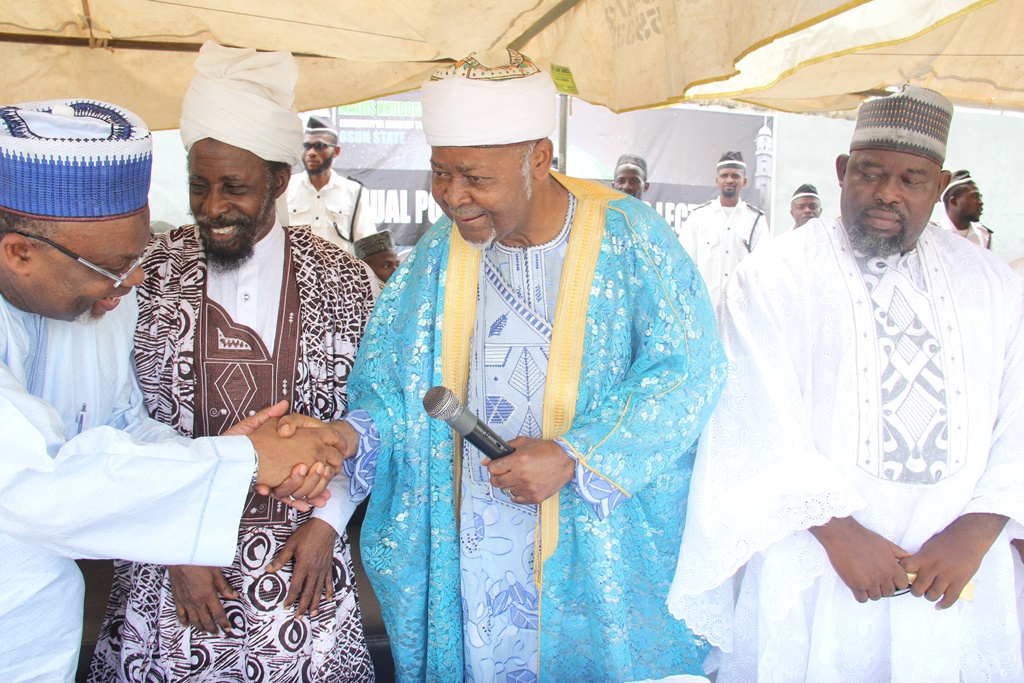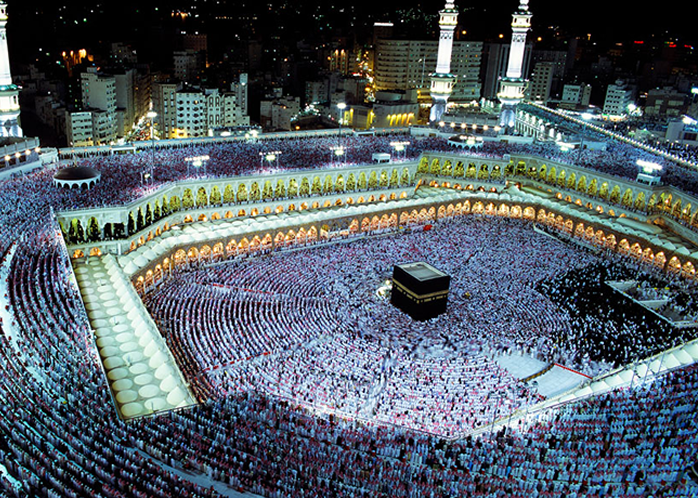AHMADIYYA NATIONAL HEAD VISITS ABEOKUTA, COMMISSIONS NEW MOSQUE
The National Head of Ahmadiyya Muslim Jama’at Nigeria Barrister Alatoye Folorunso Azeez recently embarked on a working visit to the Abeokuta Branch to address members, inspect ongoing projects and commission a new mosque built and donated by Alhaja Rahmatallah Okunola ( Kudoro) nee Afonja.Amir and his entourage were received by the Branch Executives led by the Branch President, Dr. Nasirudeen Bello at a location near the State Government Secretariat. The Amir was taken to Idi Aba to see a Mosque under construction. The land was donated to the Jama’at as far back as 1986 and the Ogungbade family single handedly started developing the mosque which has reached window level. Another well-wisher of the Jama’at sunk the well on the land. The land became disputed when some members of the family who sold the land fenced the land including our mosque and lay claim to the land. The case Barr. Alatoye enjoined members to ensure Jamaat’s lands are not lost and gave them guidelines on how to protect the land/mosque.The team was later taken to Oke Oliye mosque that has been under construction for 25 years. The mosque had been roofed but still required funds to reach completion. The Branch President mentioned that 15 Jama’ats and all auxiliary bodies had participated in the construction of the mosque with assistance from the headquarters. The Circuit President requested prayers for. Amir Ahmadiyya Muslim Jama’at Nigeria, Alhaji (Barr) Alatoye Folorunso Azeez addressing the Oke Oliye members, after inspecting the on-going Ahmadiyya Mosque Oke Oliye. with him, L-R: Sadr, Khuddam-ul-Ahmadiyya Nigeria, Engr Saheed Aina; Lawyer Ajijola Anabi; Branch President Abeokuta, Dr. Bello and Gen Secretary, Alhaji Abbas Iromini. Oke Oliye Mosque Picture under construction (below). Amir expressed his happiness on the great progress made since the last time he paid a visit. Amir said it was acceptance of prayers that had made it possible for the mosque to reach its present level. He further prayed for Allah’s assistance and empowerment of members to be able to complete the mosque to standard. He reminded all who were present at the occasion of the charge His Holiness, Hazrat Khalifatul Masih V, the Worldwide Head of Ahmadiyya Muslim Community gave to the Nigerian Jama’at which were on Tabligh, Financial independence and on Wasiyyat scheme. Amir Ahmadiyya Muslim Jama’at Nigeria, Alhaji (Barr) Alatoye Folorunso Azeez (3rd right) Maulvi Hashim Uthman; Sadr, Khuddam-ul-Ahmadiyya Nigeria, Engr Saheed Aina; Lawyer Ajijola Anabi; Branch President Abeokuta, Dr Nasirudeen Bello and General Secretary, Alhaji Abbas Iromini, during the closing prayer at Oke Oliye Mosque, Abeokuta Ogun State. COMMISSIONING OF NEW MOSQUE AT SOYOYE A new mosque of about 60 sitting capacity built and donated by Alhaja Rahmatallah Okunola (Kudoro) Nee Afonja was commissioned by the Amir. The donor joined the Jama’at while in secondary school and got married in 1986. She had done a lot of donations in the past and the latest was the new mosque commissioned. Amir Ahmadiyya Muslim Jama’at Nigeria, Alhaji (Barr) Alatoye Folorunso Azeez (2nd right), during the commissioning of a Mosque donated by Alhaja Rahmatallah Okunola, with him, Engr Rasheed Afonja (Senior Bro to donor) right, Lawyer Ajijola Anabi (left) Abeokuta Circuit President, Dr Nasirudeen Bello; Gen Sec, Ahmadiyya Nigeria, Alhaji Abbas Iromini and others at Idi-Aba Abeokuta, Ogun State. Amir Ahmadiyya Muslim Jama’at Nigeria, Alhaji (Barr) Alatoye Folorunso Azeez unveiling the Mosque and also led the prayer. The donor, Alhaja Rahmatallah gave a small speech and narrated what led to the building of the mosque. She was from Ansarudeen family as her father was the Baba Adinni of their mosque then. She had been attending the Annual Conference (Jalsa Salana) of the Jama’at since the days at Surulere and later at Ojokoro. She went to Hajj and had the intention that if Allah granted all her prayers, she would donate a mosque in appreciation. She said all the prayers were subsequently answered and she had to donate the Mosque. The donor of the Mosque, Alhaja Rahmatallah Okunola (Kudoro) make a speech during the commissioning of the Mosque at Idi-Aba, Abeokuta Ogun State. Her elder brother, Engineer Afonja gave a speech on how they came across Ahmadiyya way back in 1964 when they were at Egbado College. The Muslim students were going to the town to offer their Juma’at prayers until late Pa Salman of Ilaro Jama’at volunteered to be leading them in Juma’at prayers inside the college and that was how they became Ahmadis. Ever since then, they have remained with the Jama’at. He, on behalf of the sister, Mrs Rahmatallah, handed over the documents of the mosque to the Amir Sahib. Engineer Abdul Rasheed Afonja (left) presenting the documents of the Mosque donated by Alhaja Rahmatallah to Amir Ahmadiyya Muslim Jama’at Nigeria, Alhaji (Barr) Alatoye Folorunso Azeez in Abeokuta, Ogun State. The Amir gave a lecture on the immense spiritual and moral blessings of Masjid (mosque) and emphasised that mosque was for Allah. He narrated his Hajj experience in 2005 and how a Christian was introduced to him who had been performing Hajj for about 5 times, despite being a Christian. The Christian confirmed that Hajj is a place where prayers are accepted. He encouraged members to build functional mosques which could be started and completed on time. Amir Ahmadiyya Muslim Jama’at Nigeria, Alhaji (Barr) Alatoye Folorunso Azeez (3rd right),deliver a lecture, during the donation of a Mosque at Idi-Aba Abeokuta, Ogun State, with him, Engr Rasheed Afonja (Senior Bro to donor, Alhaja Rahmatallah) right, Lawyer Ajijola Anabi (2nd left), Abeokuta Circuit President, Dr Nasirudeen Bello and Sadr, Majlis Khuddam ul Ahmadiyya Nigeria, Engr Saheed Aina (left). He gave further instances of how prayers were accepted by Allah and wanted Quranic learning, Tabligh activities to be carried on in the mosque apart from the regular SolatHe later commissioned the Mosque at about 2.00 p.m. and also led Solat Zuhr after the commissioning.Closing prayer was offered.


